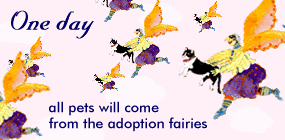http://seattlepi.nwsource.com/local/218107_pets30.html
Dog disease can be passed to humans, vets warn
Unusual number of cases seen in pets in Western Washington
When you get that friendly lick from your family dog, you may be sharing more than warm and wet feelings.
Veterinarians warn that they are documenting the re-emergence of the dangerous bacterium Leptospira, which can spread from dogs to humans and can cause kidney disease in both.
King County veterinarians have reported 12 cases since August 2004, according to Sharon Hopkins, the county's public health veterinarian. Seventeen cases have been reported in Kitsap, Pierce and Mason counties. In one-third of the King County cases, the animals died, said Hopkins.
"It is unusual to see this many cases," said Hopkins, adding that in her two years with Public Health -- Seattle & King County she hasn't heard of any before August 2004.
John Prescott, head of the Department of Pathobiology at the University of Guelph in Ontario, said pet vaccinations in the 1970s brought the disease under control, but a new strain apparently transmitted by raccoons is reappearing and spreading in urban areas.
"This had dropped off the radar screen until 1995, when we started seeing sporadic cases," Prescott said.
Although Leptospira strains infect a variety of wild animals, farm animals and pets, this strain, cropping up across North America, seems adapted particularly to dogs, which show symptoms including lethargy, vomiting, acute kidney failure and can lead to death.
Prescott said there are vaccines and urged dog owners to talk about the problem with their vets. He said pet owners should not leave food or water bowls outside where they can be raided by infected raccoons.
"This strain is very much associated with raccoons. Leptospira was once a rural disease, but this strain has been found mainly in urban areas because raccoons are all around us," he said.
The bacterium lives in the kidneys of infected raccoons for their lives and spreads to dogs when raccoons urinate in water.
The vaccination campaign of the 1970s involved a Leptospira strain that is transmitted dog-to-dog.
The Centers for Disease Control and Prevention says the bacteria can be transferred to people through pets or from swimming in infected water, camping or other outdoor activities. It is not known to spread from person to person.
People become sick from two days to four weeks after exposure, and the illness usually begins with flulike symptoms and fever. Leptospirosis can re-emerge in a second and more severe stage, called Weil's disease, when a person may have kidney or liver failure or meningitis.
Hopkins urged pet owners to use sound sanitation techniques, including wearing gloves when cleaning up their dog's feces. But she said people are unlikely to contract the disease from a simple lick on the face.
"It's possible theoretically, but it doesn't seem to happen in practice," Hopkins said.
The CDC says the bacterium can be easily diagnosed with blood tests and treated with antibiotics. The bacterium is the most common pathogen transferred from animals to humans and has been a traditional occupational hazard for farmers, sewer workers and veterinarians. The CDC says disease trackers are noting increasing incidences among urban children.








 Reply With Quote
Reply With Quote
Bookmarks